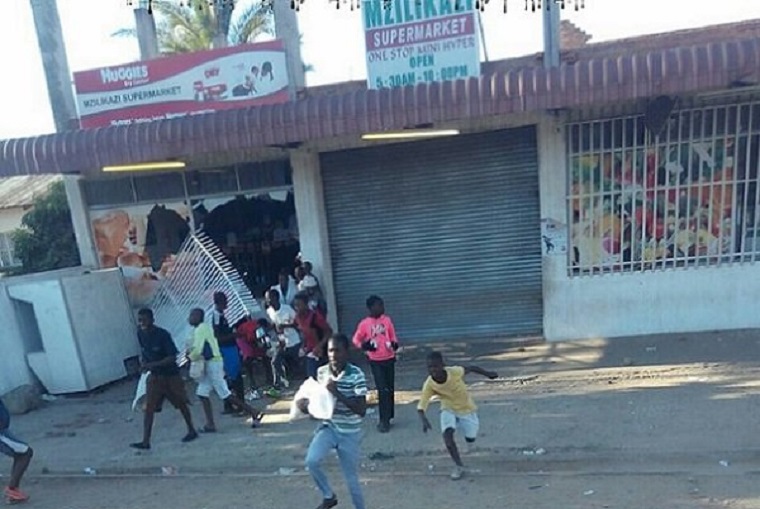 Zimbabwe’s courts convicted 375 people linked to the violence during the three-day stay-away in January, a police report shows.
Zimbabwe’s courts convicted 375 people linked to the violence during the three-day stay-away in January, a police report shows.
Jail sentences of between two and seven years were handed down to 196 people, with many others receiving lesser sentences
President Emmerson Mnangagwa in January hiked the price of fuel to $3.31 a litre, an increase that sparked a call for a stay-away by the largest labour union, the Zimbabwe Congress of Trade Unions.
The protests turned violent, and was marked by looting and the destruction of public property worth millions of dollars in several parts of the country. In response, the government ordered the shutdown of the internet for more than 36 hours – a move which crippled social media and business activity.
Human rights groups alleged that security forces killed 17 people and also raped women in the brutal crackdown that followed against the protesters.
Western governments, in particular the UK, condemned the military for the “excessive use of force”. The Zimbabwe government denied the rape allegations.
The police report shows that most convictions from across the country’s 10 provinces were in Bulawayo, the second-largest city, with 225 convictions.
Other convictions were:
- Harare, the capital, 69;
- Mashonaland West province, 27;
- Manicaland province, 19;
- Mashonaland Central, 14;
- Midlands, 6; and
- the two Matabeleland provinces had three convictions each.
The only province which did not have any convictions was Masvingo.
The longest jail term given by the courts was for seven years, with eight people receiving this sentence. Six people were jailed for six years, 40 for five years, 29 people for four years, 48 for three years and 65 for two years.
Ninety-two people were jailed for a year, 35 people for six months, four people for five months and 30 people for three months.
A further 200 people – spread across the nine provinces – paid a fine of $20, with the most, 124, in the Midlands province.
Friction erupted between the judiciary and the Law Society of Zimbabwe in the aftermath of the security forces’ crackdown on protesters over what the latter said were “mass trials” being staged by courts and meant to frustrate their clients’ legal representations.
Chief justice Luke Malaba responded to a petition handed at the constitutional court by lawyers that held a demonstration in Harare’s city centre that the mass trials were necessary to ensure the quick delivery of justice. Police arrested just over 1 000 people linked to the protests.
Beatrice Mtetwa, a prominent human rights lawyer in Harare, led the demonstration by lawyers in February and handed over the petition signed by 119 lawyers at the constitutional court.
The country’s largest opposition party, the Movement for Democratic Change, claimed that its party members were the main target of security forces, with several of its legislators and councillors forced into hiding.- TimesLive
(76 VIEWS)


